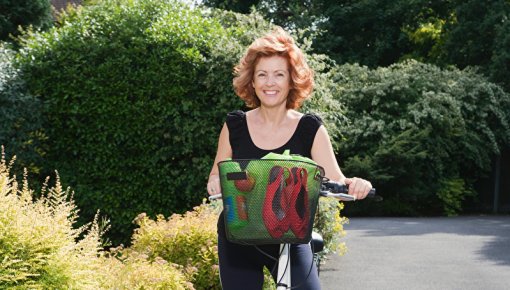The orthopedic specialist tried all sorts of things
Then I went to see an orthopedic specialist. He did an x-ray and suspected I had osteoarthritis, but he didn't find anything particularly bad. He prescribed me a whole host of treatments based on physical stimuli, from electrotherapy to cryotherapy. I was also referred to a physiotherapist, but I had to fight a little bit to get that.
Despite all of those therapies, the pain didn’t really go away. He then suggested acupuncture. I wasn’t sure whether that would have any effect. But acupuncture is an authorized treatment for osteoarthritis so I thought I could give it a whirl.
The only positive effect of the acupuncture was that I found the half hour lying down in the practice very relaxing, a kind of break from everyday life. It had no effect apart from that, though.

